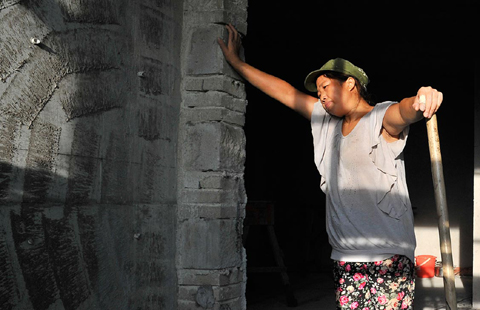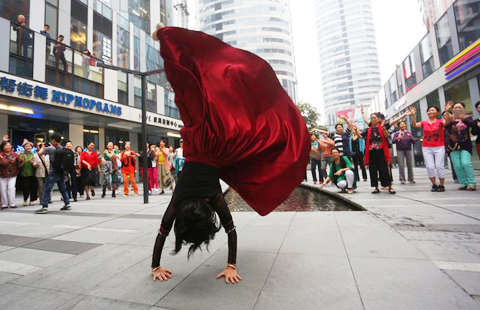Meeting of minds in Moscow
Updated: 2014-10-10 07:32
By Fu Jing and Ren Qi(China Daily Europe)
|
|||||||||||
Russia is expected to make significant moves in cementing partnership with China during Li's visit
Russia may relax its regulations on doing business with China and increase cooperation on large projects, observers say, on the occasion of Chinese Premier Li Keqiang's visit to Russia on Oct 12-14.
Li, on a European tour, was due to meet with his counterpart Dmitry Medvedev.
"Russia will work hard to achieve breakthroughs in large cooperation projects with China," says Margarete Klein, senior associate of the think tank German Institute for International and Security Affairs in Berlin.
Given European and US sanctions over Ukraine, Klein says, Russia considers it essential to demonstrate that it is not isolated. "And against the background of EU sanctions, Russia needs modernization partners beyond Europe."
The partnership between Russia and China is a success story in many aspects, she says.
"Both sides managed to mitigate bilateral security threats, cooperate on a broad range of issues and enhance trade."
Both sides have also need to enrich the strategic partnership by mapping out visions of their future relationship, she says. And people-to-people contacts should be boosted to support political and economic cooperation.
Kerry Brown, professor of Chinese politics at the University of Sydney, says China and Russia have a pragmatic relationship.
"They have a complex history, and they are cemented by mutual interests, and at the moment these converge," Brown says.
Andrei Kirillov, the director of the Beijing bureau of Russia's official ITAR-TASS News Agency, also says Li's visit to Moscow is very important for Russia.
Kirillov says it demonstrates the close and sustainable political and economic cooperation between Russia and China, as well as their comprehensive and strategic partnership.
"As we can see, the frequency of the leaders' meetings has been increasing, while many topics are raised during the meetings.
"The meeting of prime ministers is so important that it can be considered as complementary to the presidents' meetings," he says.
In the current international climate, Russia's government can tell who is a real friend, Kirillov says.
"For Moscow, the meeting is not only about pure economic cooperation, but has political meaning as well."
Yang Cheng, deputy director of the Center for Russian Studies at East China Normal University, says the meeting would be important in boosting the partnership between China and Russia.
Yang says the meeting can be expected to result in breakthroughs in strategic projects and sectors such as trade, investment, energy, wide-bodies aircraft and high-speed rail construction.
Western sanctions have had an impact on Russia's economic development and domestic stability, Yang says.
"In the meantime, as the second largest economy and a neighboring country of Russia, China has played a significantly important role in Russian foreign policy," Yang says.
Yang emphasizes that even without Western sanctions, Russia and China have grown closer in the past few years.
"However, to some degree, the sanctions push the relationship to a higher level," Yang says.
Driven by trends of globalization and regional integration, all major countries have found themselves in interdependent cooperation/competition networks, in which they have neither purely competitive relations nor purely cooperative relations, Yang says.
What China has done is to use its flexible diplomatic policy, rather than simply seeking a balance between Russia and the West, he says.
"Cooperation/competition networks will be the new normal in the post-Cold War period."
Contact the writers at fujing@chinadaily.com.cn and renqi@chinadaily.com.cn
Liu Jia in Brussels contributed to this story.
(China Daily European Weekly 10/10/2014 page9)
Today's Top News
Beijing to see six-day holiday during APEC
China, Germany to sign vital pact
Patrick Modiano wins Nobel
UN reports on human rights in Ukraine 'biased'
Dutch FM apologizes for revealing MH17 passenger with oxygen mask
Huawei makes to world's top 100 brands list
Alibaba's 'kung fu' culture
On this beach no one is naked
Hot Topics
Lunar probe , China growth forecasts, Emission rules get tougher, China seen through 'colored lens', International board,
Editor's Picks

|

|

|

|

|

|





